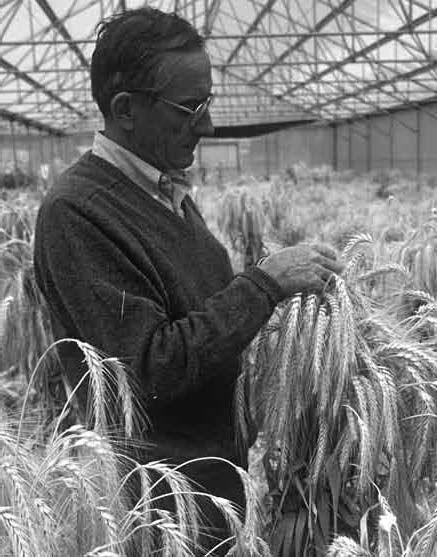Wheat agronomy student in the Bell Medal finals
CIMMYT wheat agronomist Bram Govaerts has informed the editors that Sarah Chambers, a student with CIMMYT’s wheat agronomy team in summer 2005, was one of the finalists of the 2006 Bell Medal of the University of Queensland, Australia. During her internship, Sarah collected data from the long-term sustainability trial at El Batán and interviewed farmers. Her honors project, “An economic comparison of conservation agriculture technologies with traditional farm practices in rain-fed cropping systems of central Mexico,” received special mention from the Bell Medal judges.
Says wheat agronomist Ken Sayre: “Sarah was an undergraduate exchange student at the Technológico de Monterrey and contacted me about doing a project with us. We’d always wanted to put an economic foundation on our research with the long-term trial, so we sent her out with Dagoberto Flores to interview rainfed maize farmers. The data they obtained on production costs and returns went into a spreadsheet model created by Bram, and showed that Mexican maize farmers lose money using conventional practices but can improve earnings significantly by using zero-tillage and leaving residues on the soil.”
Sayre cautions that the study was based on market costs for labor and residues, and should be fine-tuned by taking into account the use of family for fieldwork or the returns to feeding residues to farm animals, rather than selling the residues. The Bell Medal was created in 1985 in honor of Arthur F. Bell, who was a pathologist, Director of the Bureau of Sugar Experiment Stations, and the first scientist to hold the position of Under- Secretary of the then State Department of Agriculture and Stock in Queensland.

 Former CIMMYT wheat program director and retired program manager at the Australian Centre for International Agricultural Research (ACIAR), Tony Fischer, was awarded the Order of Australia as part of the Queen’s 2007 Birthday Honours List.
Former CIMMYT wheat program director and retired program manager at the Australian Centre for International Agricultural Research (ACIAR), Tony Fischer, was awarded the Order of Australia as part of the Queen’s 2007 Birthday Honours List.